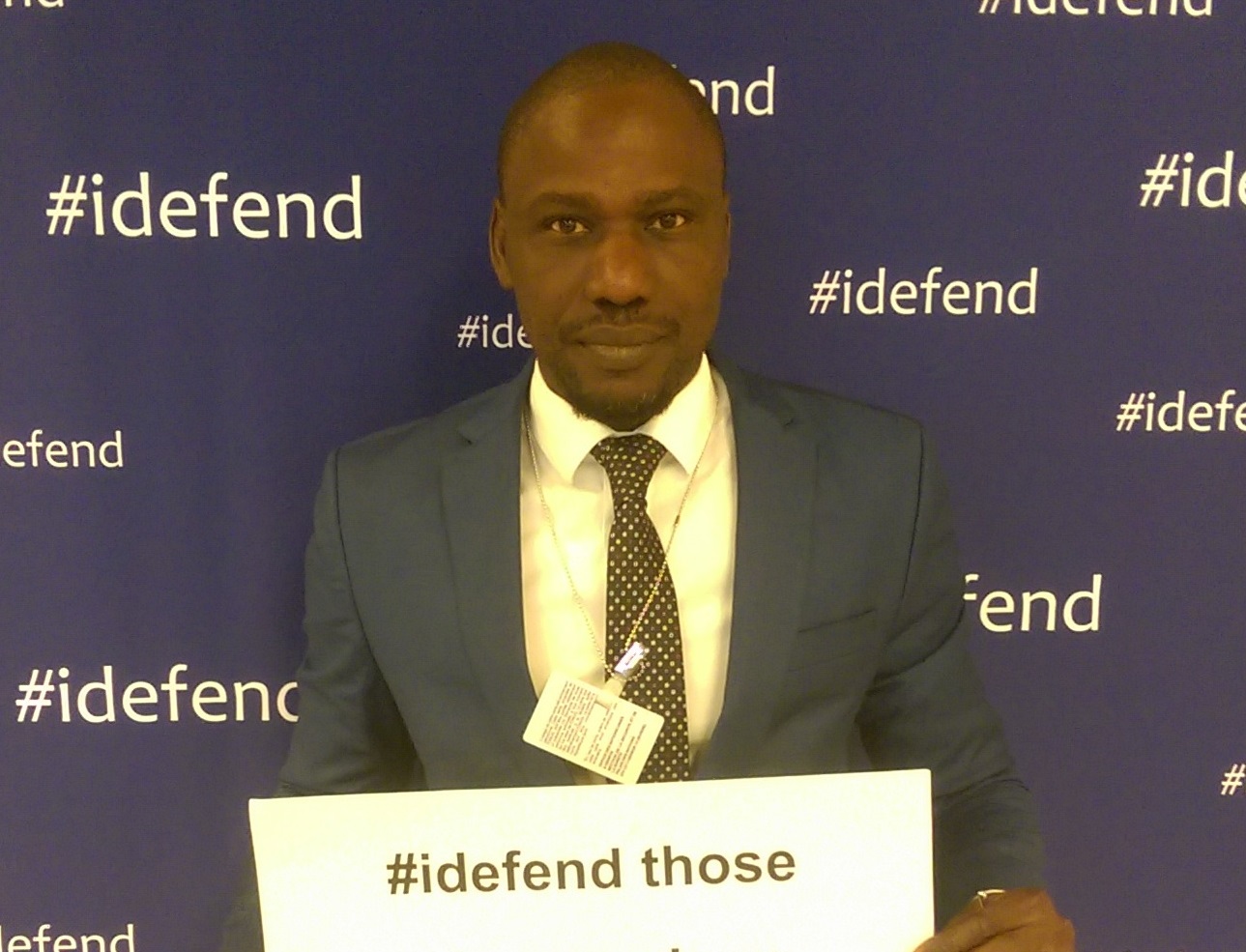
Joseph Bikanda: coordinator of Pan African Human Rights Defenders Network
Joseph Bikanda, leading the Pan African Human Rights Defenders Network, emphasises the importance of collaboration in protecting human rights defenders across Africa, leveraging regional and international mechanisms for stronger advocacy and emergency support.
Joseph Bikanda is the coordinator of the Pan African Human Rights Defenders Network (PAHRDN), a Network made up of 5 sub-regional networks of human right defenders (HRDs), including the East and Horn of Africa, the Central, the West, the Southern and the North African HRDs Networks.
Joseph first became involved in human rights as a university student. A group of students, which included him, needed a voice to advocate on their behalf. Joseph became that voice. In doing so, Joseph learnt about human rights mechanisms existing at the time.
‘I found myself surrounded by the human rights world and knew that it was the right place for me. Since then I have been working in human rights in various capacities.’
Joseph explained that PAHRDN’s key focus is to strengthen the capacity and provide support to regional networks, civil society organisations and HRDs.
‘You are always stronger working together in a network, and if each element of the network is more capable and works together – you are even stronger’
PAHRDN engages with the African Commission on Human and Peoples’ Rights, the Human Rights Council and other international mechanisms of the United Nations. Joseph explains that PAHRDN is very supportive of joint actions between international and regional human rights mechanisms, such as the Addis Ababa Roadmap which has been committed to by the Special Procedures Mandate Holders of the UN Human Rights Council and the African Commission on Human and Peoples’ Rights which seeks to enhance cooperation for the promotion and protection of all human rights of all.
‘HRDs play a vital role in addressing discrimination and inequality, promoting the rule of law, and exposing and seeking accountability for human right violations. Regional and international human rights mechanisms support HRDs, but networks such as PAHRDN are essential to create local supporting mechanisms for HRDs’
Joseph explained that the processes associated with international and regional human rights mechanisms create limitations in the support they can provide HRDs. In this respect, PAHRDN has established local mechanisms to ‘fill the gap as best we can’. These mechanisms include providing emergency support, lawyers, trial observation and practical support for HRDs.
‘One of our key roles is to provide support for HRDs in emergency situations when they are being harassed, targeted or when their lives are in danger. We have also created urgent mechanisms which apply pressure to perpetrators of human rights abuses.’
Joseph commented on the essential role that HRDs played in initiating the development of the law for the protection of HRDs in Côte d’Ivoire. He shared his hope that each African country develops similar laws in the near future and, in particular, that each of those laws is effectively implemented.
‘I hope to see HRDs develop further as key actors combatting corruption and promoting transparency. Involving HRDs in decisions ensures that the views of civil society are raised and considered.’
In his discussion with ISHR, Joseph identified that his primary objectives of attending the March session of the Human Rights Council were to raise awareness of – the horrific situation in Burundi, in particular the persecution of journalists and HRDs; the continued fighting in South Sudan and the abduction of children for combat; and the concerning counter terrorism laws in Cameroon and Ethiopia, which lack differentiation between defenders and terrorists.
‘As well as interacting with the mechanisms of the Human Rights Council, attending its sessions enables us to strengthen African group networks, which is essential for our continued and collaborative work to protect HRDs.’
Follow Joseph Bikanda on Twitter at @Bikjo.
